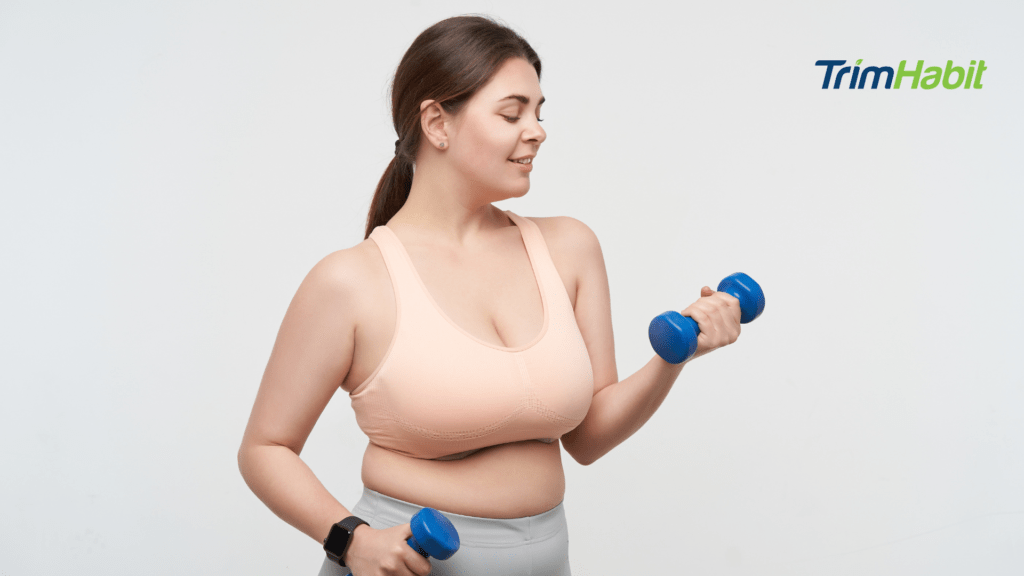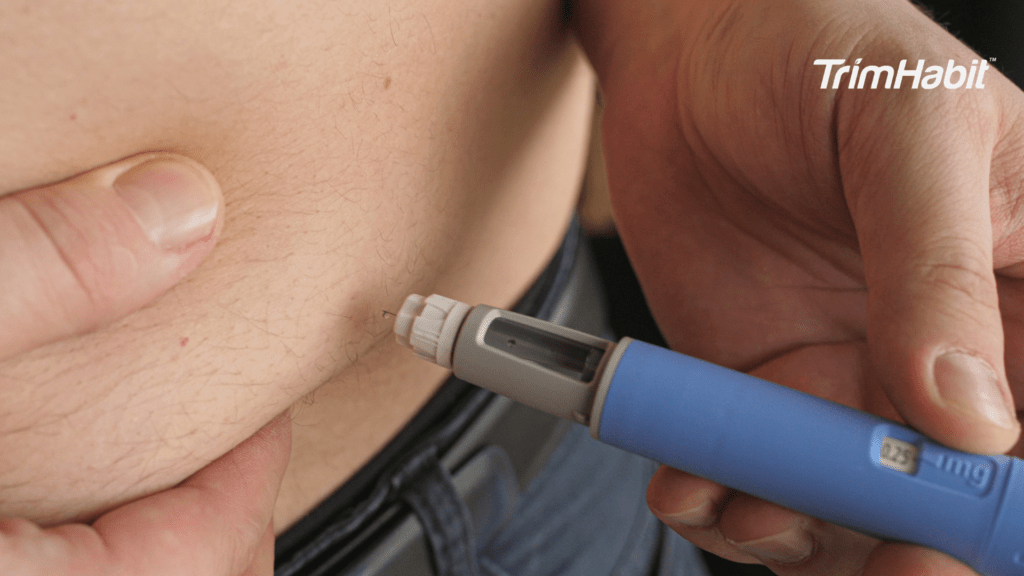Intermittent fasting has become a popular and effective approach for weight management and overall health improvement. Its flexibility and diverse methods have garnered widespread attention, making it a go-to strategy for those seeking to shed pounds and enhance their well-being.
However, many individuals often wonder if certain beverages are allowed during a fast. One such beverage is diet soda.
In this article, we answer the question “Does diet soda break intermittent fasting?” while delving into the influence of artificial sweeteners, the intricacies of fasting, and how these factors might affect your fasting objectives. Learn more about this intriguing topic to help you make informed choices during your intermittent fasting journey.
What Is Fasting?
Fasting is the practice of abstaining from the consumption of specific foods and beverages for a designated duration1. During fasting, the body undergoes metabolic alterations that can potentially yield both advantageous and disadvantageous effects on one’s overall metabolic well-being.
As indicated in a comprehensive systematic review, fasting periods have been associated with several health benefits, including:
1. Weight reduction2
2. Enhanced cognitive focus3,4
3. Potential management of diabetes and other health conditions linked to obesity5.
However, it is imperative to recognize that fasting is not universally synonymous with good health. Scientific literature also highlights that unhealthy fasting practices, such as those observed in eating disorders or due to food scarcity, have been linked to adverse outcomes. These may include substance abuse and the manifestation of mental health symptoms, including anxiety and depression6.
Therefore, irrespective of the type of fasting regimen you intend to undertake, it is highly advisable to consult with a medical practitioner or healthcare expert to ensure a safe fasting experience.
What Is A Diet Soda?
Diet soda is a variety of sugar-free carbonated beverages that replaces sugar with artificial sweeteners7. Some individuals consume it with the mistaken belief that it serves as a healthy substitute for regular soda. Is it less detrimental to health? Yes, it is. But can it be deemed genuinely healthy? No.
Aspartame and stevia are the preferred artificial sweeteners utilized in most diet sodas. Aspartame, in particular, consists of two amino acids, namely aspartic acid and phenylalanine, and has been at the center of various controversies8. Nevertheless, it has received approval for safety from the United States Food and Drug Administration (FDA).
Diet sodas also incorporate additional additives. Take Diet Coke, for instance, which includes carbonated water and an array of additives like caramel color, aspartame, phosphoric acid, potassium benzoate, citric acid, and caffeine9. While these components do not offer any nutritional advantages, they are unlikely to pose significant harm to the consumer.
Advantages And Drawbacks Of Diet Soda
For the majority of individuals, the primary appeal of diet soda lies in its offering of zero sugar and zero calories. For those trying to lose weight, the ability to savor a sweet, effervescent beverage without concerning themselves with calorie content can often overshadow other considerations.
Indeed, this holds true. Diet soda is devoid of both sugar and calories. Consequently, consuming diet soda, on its own, will not contribute to weight gain while you’re diligently striving to shed a few pounds. However, it’s worth noting that diet soda consumption can potentially stimulate your appetite.
When a substantial quantity of diet soda is consumed, it may prompt your brain to convey signals to your body, indicating a deficiency in calorie intake. This, in turn, can lead to unintentionally consuming more calorie-dense foods more frequently, ultimately resulting in weight gain10.
Additionally, various studies have established links between diet soda and health concerns, particularly in terms of heart disease and type 2 diabetes11. Some investigations have even associated daily consumption of diet soda with adverse effects on kidney health and an increased risk of childhood obesity12.
Hence, while the artificial sweeteners in diet soda can offer the allure of enjoying a sweet, calorie-free beverage, it’s imperative to acknowledge that the potential risks associated with daily diet soda consumption may outweigh the limited benefits it provides.
Does Diet Soda Break Intermittent Fasting?
Intermittent fasting is characterized by adhering to specific time-restricted eating and fasting periods, during which the consumption of any calories is strictly prohibited. Given this framework, you might be wondering if diet soda is a permissible beverage during intermittent fasting. The answer, it seems, is somewhat nuanced.
From a technical perspective, the consumption of a can of diet soda won’t break a fast, as it contains zero calories and does not impact your overall calorie intake.
However, if your intention behind intermittent fasting is to harness specific health-related benefits, such as the enhancement of gut health13, it’s essential to recognize that diet soda may interfere with the concept of affording your gut the opportunity to rest14. So, in terms of breaking your fast in the strict caloric sense, diet soda does not, but for those who derive enjoyment from drinking diet soda, the situation becomes more intricate.
It’s not solely about the absence of calories and sugar in diet soda; there are additional factors to consider. Some individuals believe that because diet soda lacks sugar and calories, it should be a permissible indulgence during the fasting period. The effervescence and substantial quality of soda may also help make the fasting period more manageable while awaiting the next meal.
Nevertheless, in the relationship between diet soda and intermittent fasting, it seems that artificial sweeteners, which are responsible for the appealing taste of diet soda, do not align well with the objectives of fasting. These sweeteners may trigger insulin responses, potentially affecting the metabolic state intended during fasting.
Moreover, the influence of artificial sweeteners on weight loss remains a subject of debate in the expert community. Diet soda has the potential to intensify sugar cravings and hunger cues throughout the day, making the adjustment to fasting even more challenging, particularly for those grappling with sugar cravings12.
As observed in their potential to stimulate insulin release, artificial sweeteners may lead to an increase in blood sugar levels. Therefore, if your fasting objective is linked to lowering blood glucose, diet soda may not be the ideal choice for you. In summary, while diet soda may not technically disrupt your fast in terms of caloric intake, its interactions with gut bacteria and potential effects on hunger and blood sugar warrant careful consideration in the context of intermittent fasting.
Alternatives For Diet Soda During Intermittent Fasting
While diet soda may be considered a somewhat better option than regular sodas, it still may not align with your health improvement goals, particularly during intermittent fasting. Instead of turning to diet soda, you have various fasting-friendly beverages to choose from:
- Coffee or Tea as a Caffeinated Alternative
As mentioned earlier, diet soda often contains caffeine, which some people rely on for an energy boost. If this is your primary reason for consuming diet soda, consider making the switch to coffee or tea.
It’s essential to adhere to plain black coffee or tea, such as green tea or ginger tea, without any additives. This precaution is crucial because sugar, honey, milk, and other additives can significantly contribute to your caloric intake, thereby breaking your fast. With black coffee or plain tea alone, it will not disrupt your fasting period.
Moreover, certain studies suggest that caffeine can function as a natural appetite suppressant, potentially aiding in weight loss15. Both coffee and tea boast polyphenols, which have been associated with their antioxidant and anti-inflammatory properties, offering additional health benefits16.
- Seltzer or Carbonated Water as a Fizzy Alternative
If the fizziness of diet sodas is what attracts you, consider switching to carbonated water, commonly known as sparkling water. Carbonated water, infused with CO2 to create bubbles, can replicate the fizzy experience.
Crucially, carbonated water doesn’t contain artificial sweeteners, ensuring it won’t break your fast. Moreover, unlike diet sodas that might trigger hunger, sparkling water could enhance satiety by imparting a sensation of fullness17.
- Satisfy Sweet Cravings with Natural Foods
For those who turn to diet soda to satiate sweet cravings, incorporating natural foods like fruits into your diet can provide a healthier alternative. Fruits offer natural sweetness, eliminating the need for added sugar, which has been linked to adverse effects on overall health18.
Furthermore, fruits are replete with vital nutrients and dietary fiber19, which can aid in the prevention of conditions like obesity, diabetes, and cardiovascular diseases20.
It’s vital to remember that the consumption of these natural foods should occur within your designated eating window while practicing intermittent fasting.
- Plain Water for Hydration
It’s unsurprising that you can and should consume water during your fasting period. In fact, when actively fasting, it’s advisable to increase your water intake, as approximately 20% of your daily water intake typically comes from food21.
Water plays an essential role in maintaining your bodily functions, providing crucial minerals, and keeping you adequately hydrated. It can also help alleviate hunger sensations when your stomach is empty, promoting a healthy eating pattern and preventing overindulgence22.
Conclusion
In conclusion, the question of whether diet soda breaks an intermittent fast is multifaceted. While diet soda itself does not typically contain calories or sugar that would disrupt the strict no caloric aspect of fasting, there are other considerations to take into account.
The potential impact of artificial sweeteners found in diet soda on gut health, appetite, and blood sugar levels raises concerns for those practicing intermittent fasting with specific health objectives in mind. These artificial sweeteners, which are absorbed by gut bacteria, may undermine the goal of affording your gut a rest during fasting. Furthermore, they can trigger an increase in appetite, potentially making fasting more challenging, especially for those contending with sugar cravings.
Considering the potential health risks associated with diet soda consumption, such as heart disease and type 2 diabetes, and their impact on kidney health and childhood obesity, the drawbacks may outweigh the benefits, particularly when pursuing the path of intermittent fasting for health and wellness.
The journey of intermittent fasting is a personalized one, and the choice regarding diet soda consumption within this regimen should be based on individual goals, preferences, and the potential trade-offs between its benefits and risks. Ultimately, the decision to incorporate or avoid diet soda during intermittent fasting should align with your unique health objectives and considerations.









